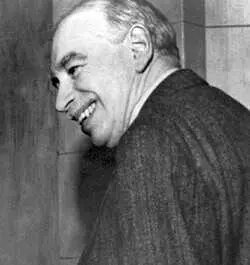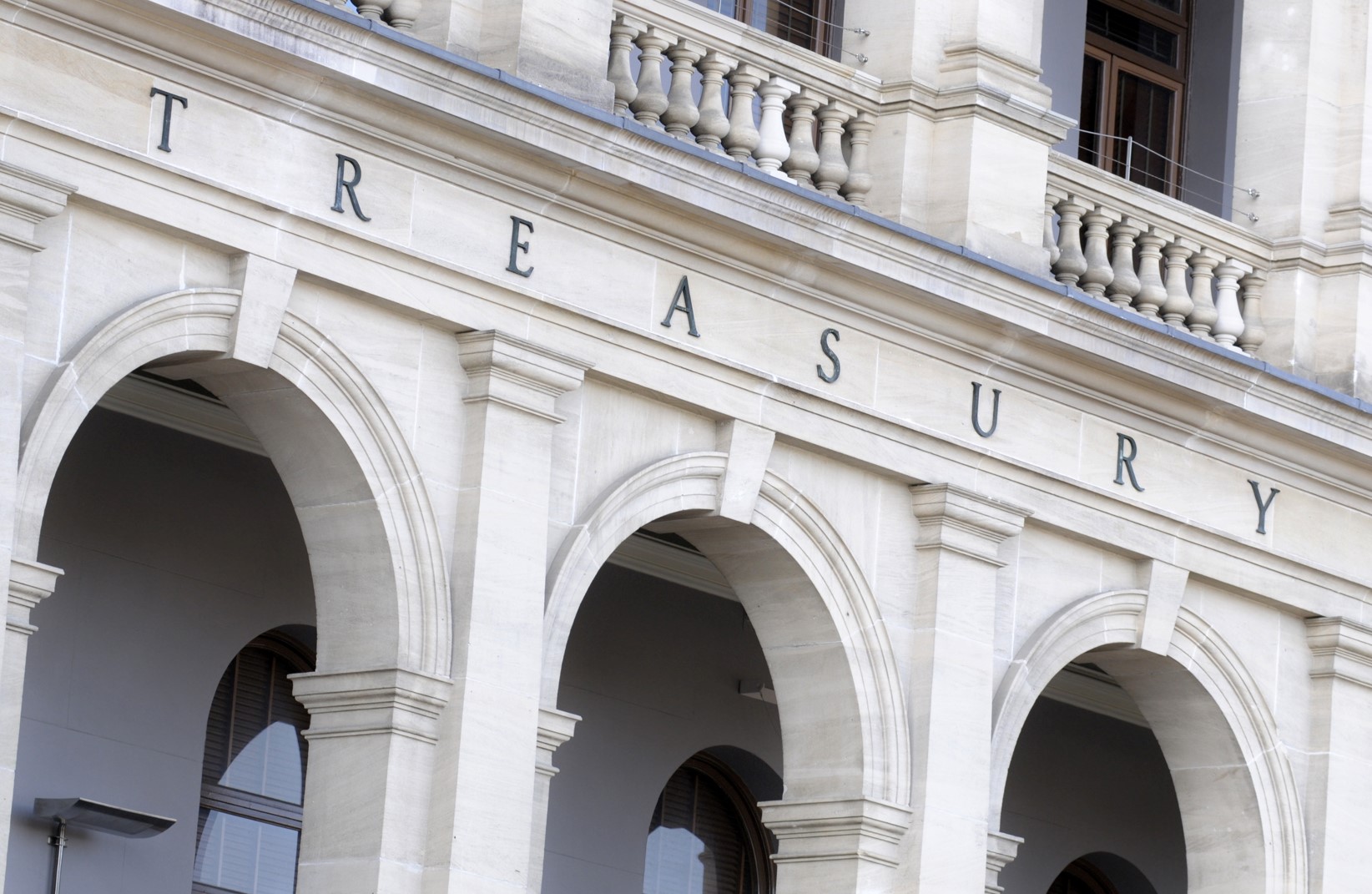
Economist Profiles
John Maynard Keynes
Read a summary using the INOMICS AI tool
Students often learn about important figures in economics only briefly and in passing, yet the content taught in economics courses often comes from brilliant economists such as these.
John Maynard Keynes was a philosopher and economist who made a massive impact on the field. He is often placed next to luminaries such as Adam Smith and Karl Marx as one of the great founding thinkers in economic theory, and for good reason. Keynes’ ideas formed the basis of Keynesianism, a school of economic thought that was the first to seriously challenge the classical way of thinking.
Keynesianism is one of the major disciplines or philosophies of economics, as opposed to the classical, Neoclassical, or monetarist (and etc.) schools of thought. Until Keynes’ new theories, economists had been stuck with classical models of economics that were a great starting point for economic theory, but were ultimately too inflexible and unrealistic. (Eventually, economists who saw value in the classical models gave rise to the Neoclassical school of thought, which has updated and improved classical economic thinking to remedy some of the criticisms thrown at it). Economics was forever changed as a result of this new perspective, giving rise to many new models and theories and cementing Keynes’ place in the history books.
Suggested Opportunities
- Professional Training Course
- Posted 1 day ago
BSE Competition Economics Courses - Executive Education
Starts 9 Mar at Barcelona School of Economics in Barcelona, Spagna
- Programma di Master
- Posted 1 day ago
Master's programme in Economics
Starts 31 Aug at University of St.Gallen in Sankt Gallen, Svizzera
- PhD Program, Program, Postgraduate Scholarship
- Posted 2 days ago
PhD Program in Economics - 6 Fully Funded Scholarships
at Luiss Guido Carli University of Rome in Rome, ItaliaThe life of Keynes
Keynes was born in Cambridge, England, and remained there to study at King’s College in Cambridge. He received his degree in mathematics in 1905. There, he was influenced by the eminent economists Alfred Marshall and Arthur Cecil Pigou, whom he studied under.
Keynes bounced around between academic and government employment during his adult life. In 1908, he became a lecturer at King’s College. He left to work for the British government in the India Office, which was tasked with overseeing British rule in India. Here he wrote his first major book, Indian Currency and Finance, in 1913. Later, he returned to the university to teach again until 1915.
Keynes left university employment again to work for the British Treasury, where he was the chief representative during the peace talks that led to the Treaty of Versailles, which was signed in 1919. However, Keynes left the Treasury soon after, as he thought the Treaty was unnecessarily burdensome to the Germans.

Image credit: kstudio on Freepik.de.
In fact, Keynes wrote his work The Economic Consequences of the Peace to state this, correctly predicting that the punitive measures levied by the Treaty would keep Germany poor and politically unstable. Famously, that political instability allowed the Nazis to rise to power less than twenty years later.
Keynes returned to Cambridge as a professor after his career with the Treasury. Later, he contributed to both the Bretton Woods conference that helped to devise post-World War II international trade regulations, and the formation of the International Monetary Fund (IMF) at the same conference. Keynes passed away in 1946, just a few years after the Bretton Woods agreement.
Keynes’ contributions to economics
When the Great Depression hit in the 1930s, then-contemporary economic theory could not explain why the Depression was so severe. Classical economic models tend to explain how the economy self-corrects over time, and classical economists believed the market would self-correct and government intervention would do nothing at best. Yet, with the Depression, the economy continued to stagnate with massive unemployment and a lack of self-correcting market behavior that these models could not explain.
Keynes’ initial theories were an attempt to explain the times. Beyond the issue of describing the Great Depression, he did not see a way for classical economic theory to explain how economies can come out of recessions. So, he reassessed and started to develop theories of economics that could account for the Depression, and that showed how governments could help their economies to recover.
This new reasoning was readily accepted by political figures at the time, who embraced government spending as a policy tool. U.S. President Franklin D. Roosevelt’s “New Deal” policies, which involved much government spending as a way to spur the economy out of the Great Depression, were urged on by Keynes himself in a letter he wrote to the American president in 1933.

Image credit: Public domain via U.S. National Archives.
In this line of reasoning, and with his works Tract on Monetary Reform and Treatise on Money, Keynes contributed to the theory of monetary policy. He believed that a stable economy required stable interest rates, so advocated for the central bank to adjust the interest rate based on the price level. If the price level rose, Keynes thought the central bank should lower the interest rate, and vice-versa. The basic idea behind this thinking is that as the interest rate rises, borrowing becomes more expensive, so individuals and businesses will consume less; this can counter inflation.
But, it was Keynes’ work The General Theory of Employment, Interest and Money that revolutionized economics more than any of his other works. This book introduced many foundational concepts that have become important theories and given rise to much more economic thinking since.
For example, the concept of aggregate demand – the principle that the overall demand in an economy is the sum of consumer demand, government spending, and investment – was created and popularized by this book. He also showed that unemployment was probably impossible to prevent without sufficient government spending, which later gave rise to the idea of a natural rate of unemployment. This was in direct opposition to classical economic models, which again assumed that the market would achieve full employment on its own via self-correcting behavior.
Keynes’ The General Theory also advocated for government spending to stimulate the economy during economic downturns, to lessen the impact of the recession. Notably, Keynes argued that it would even be a good thing for governments to take on debt to do so, in an era where balancing the government budget was seen as crucially important. Despite this, Keynes was a proponent of a free, perfectly competitive market, believing in Adam Smith’s idea of the invisible hand.
Keynes’ legacy
Of course, Keynes’ ideas were eventually built upon and critiqued, for example that his models cannot account for sticky wages or prices, and that they would overstate the usefulness of government spending as that encourages crowding out.
As a result, Keynesian economics has changed greatly since the titular economist introduced the ideas. In particular, Keynesian ideas have been expanded upon by economists such as John Hicks, Robert Solow, Paul Samuelson, and others - producing much of modern economic thought in the process. Through their work and that of still more economists, the New Keynesian field has emerged with models that can account for some of the criticisms levied at Keynes’ original work. Yet the revolution that Keynes started has retained his name, and rightfully so.
Header image credit: IMF, Public domain, via Wikimedia Commons.
References
https://www.econlib.org/library/Enc/bios/Keynes.html
https://www.britannica.com/biography/John-Maynard-Keynes
-
- PhD Program, Program, Postgraduate Scholarship
- Posted 2 days ago
PhD Program in Economics - 6 Fully Funded Scholarships
at Luiss Guido Carli University of Rome in Rome, Italia
-
- Seminario
- Posted 1 week ago
Geopolitical Alignment, Tensions, and the Global Economy (Measurement and Evidence)
Between 4 Dec and 4 Dec in Nanterre, Francia -
- Postdoc Job
- Posted 5 days ago
Two-year Postdoctoral Research Position in Economics
At Department of Economics and Management, University of Padua in Padova, Italia













